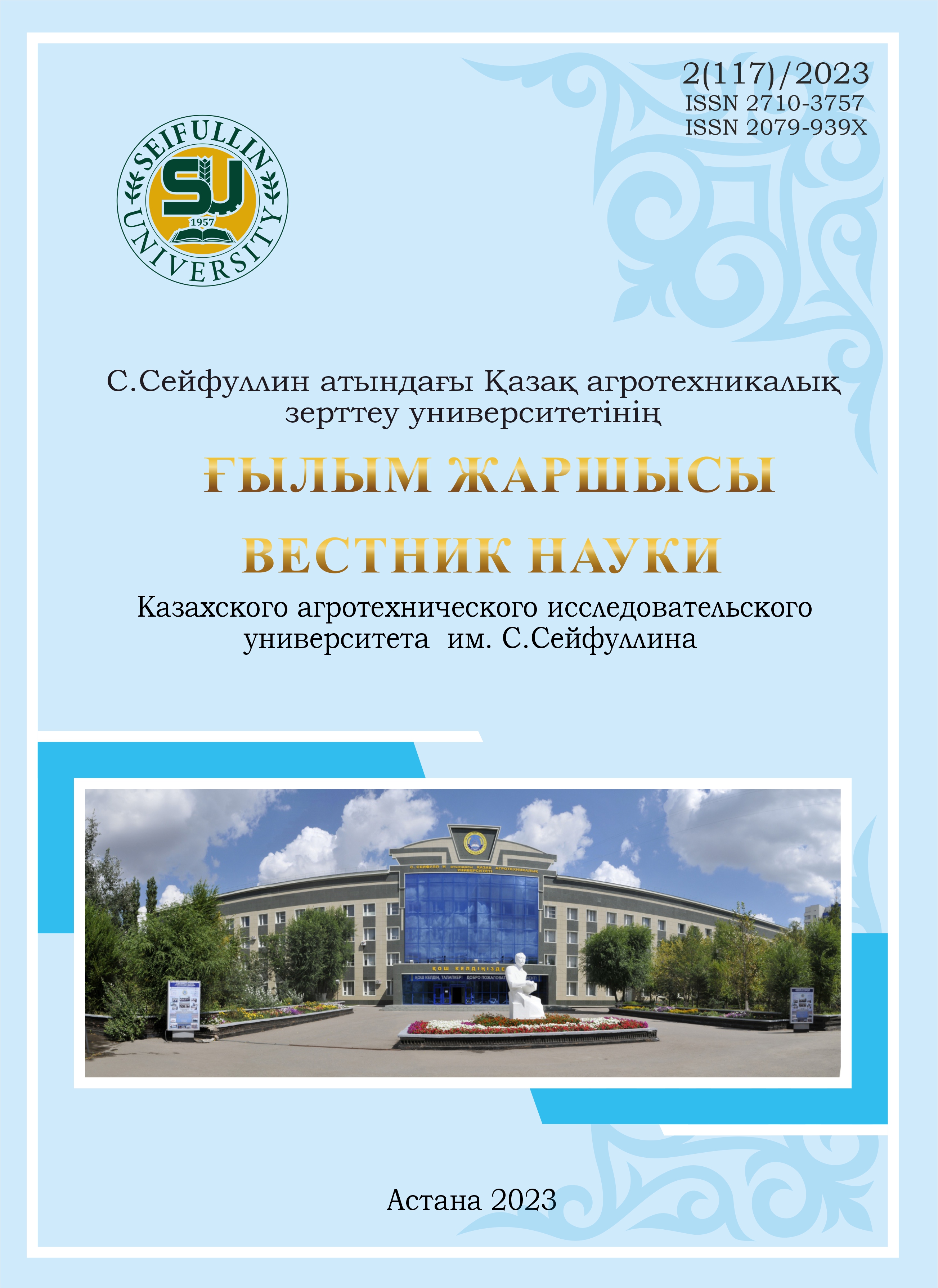INTENSITY OF ORGANIC FARMING IN COTTON
DOI:
https://doi.org/10.51452/kazatu.2023.2(117).1393Keywords:
cotton; grade; deep loosening of the soil; biological humus; biological fertilizers; volumetric mass of soil; soil organic matter.Abstract
Excessive use of chemical mineral fertilizers and pesticides and for such a long time contributed to an increase in soil salinity, which negatively affected crop yields and the ecological situation In this regard, the question arises of restoring organic fertility, which ensures soil processes and, above all, an increase in the reserves of organic matter in the soil and the production of environmentally friendly cotton products, since this problem is very relevant for the development of cotton growing in the Turkestan region. The scientific and practical significance of the work is the scientific support of the technological development of organic production of cotton products. All experiments and observations of the scientific work wer carried out in accordance with the methodological requirements adopted for conducting field and vegetation experiments on cotton in irrigated agriculture. The study revealed that the use of vermicompost at a rate of 4.0 tons / ha and deep loosening of the soil by 50 cm improves soil density by 0.021 g /cm3 compared to traditional technology. When using biohumus at a rate of 4.0 t/ha, the high content of humus in the 0-60 cm soil layer was 0.690% in spring and 0.677% in autumn, which is 8.4% and 8.2% higher compared to traditional technology.

